Ten recommended open source free text annotation tools
Text annotation work is the work of corresponding labels or tags to specific content in the text. Its main purpose is to provide additional information to the text for deeper analysis and processing, especially in the field of artificial intelligence.

#Text annotation is crucial for supervised machine learning tasks in artificial intelligence applications. It is used to train AI models to help more accurately understand natural language text information and improve the performance of tasks such as text classification, sentiment analysis, and language translation. Through text annotation, we can teach AI models to recognize entities in text, understand context, and make accurate predictions when new similar data appears.
This article mainly recommends some better open source text annotation tools.
1.Label Studio
https://github.com/HumanSignal/label-studio
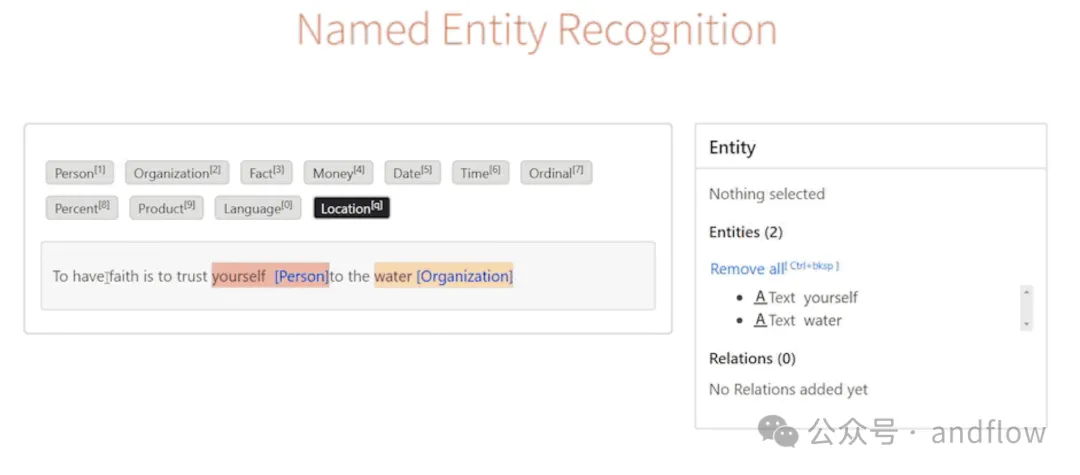
2.Doccano
https://github.com/doccano/doccano
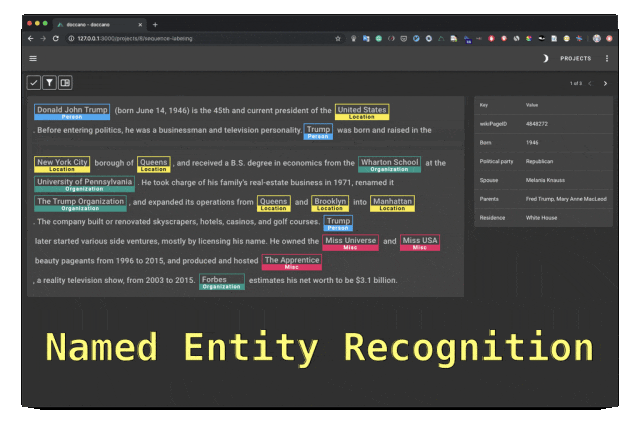
3.Universal Data Tool
https://github.com/UniversalDataTool/universal-data-tool
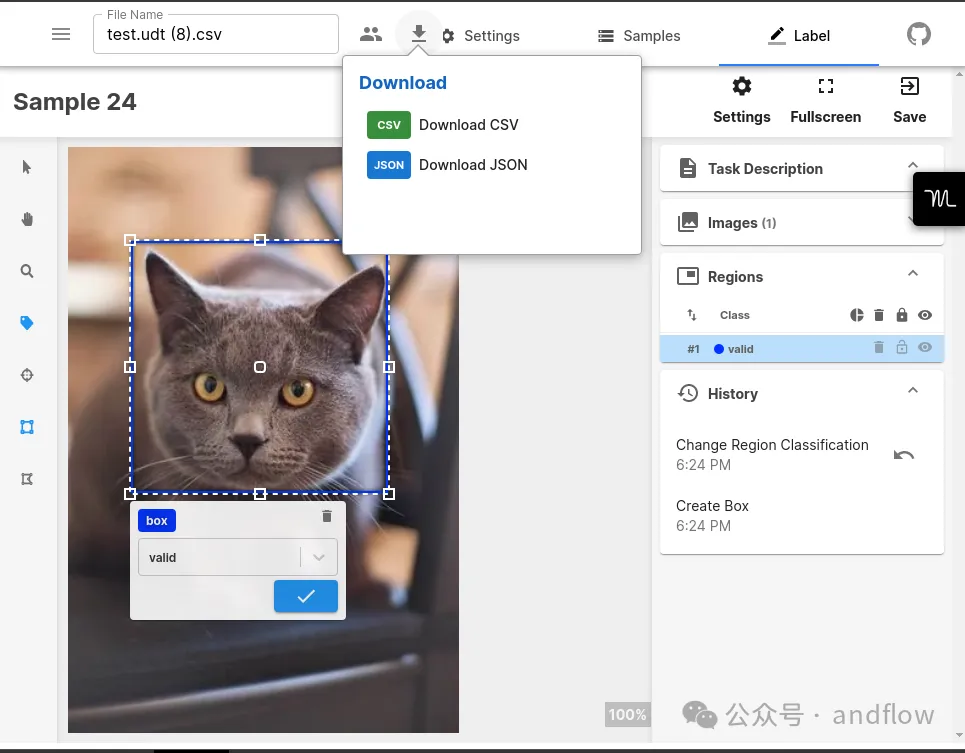
4.YEDDA
https://github.com/jiesutd/YEDDA
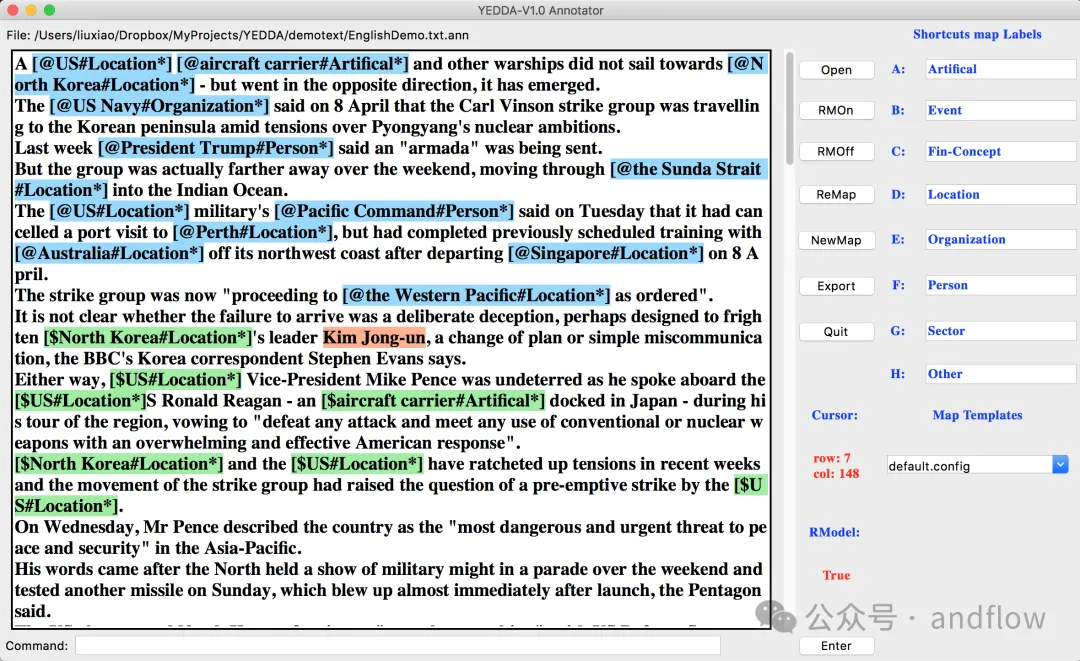
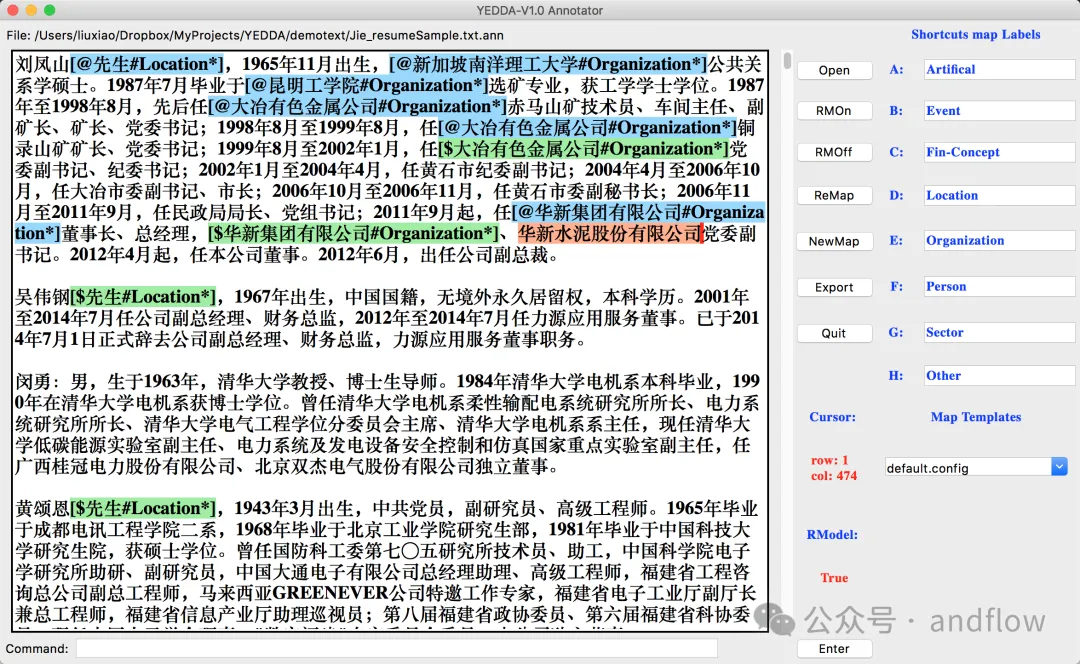
YEDDA is a text annotation tool that can be used in various languages, symbols and emoticons. It supports using shortcuts, commanding the model, and exporting annotation text as sequence text. Supports functions such as intelligent recommendations and administrator analysis.
YEDDA is compatible with all major operating systems, including Windows, Linux and MacOS.
5.Argilla
https://github.com/argilla-io/argilla
Argilla is a platform for artificial intelligence engineers An open source data collaboration platform with domain experts to provide high-quality and efficient data output.
It helps control data quality and improve AI output quality, and improves efficiency by enabling rapid iteration of data and models. Argilla also provides data management and model training tools.
6.KernAI Refinery
https://github.com/code-kern-ai/refinery
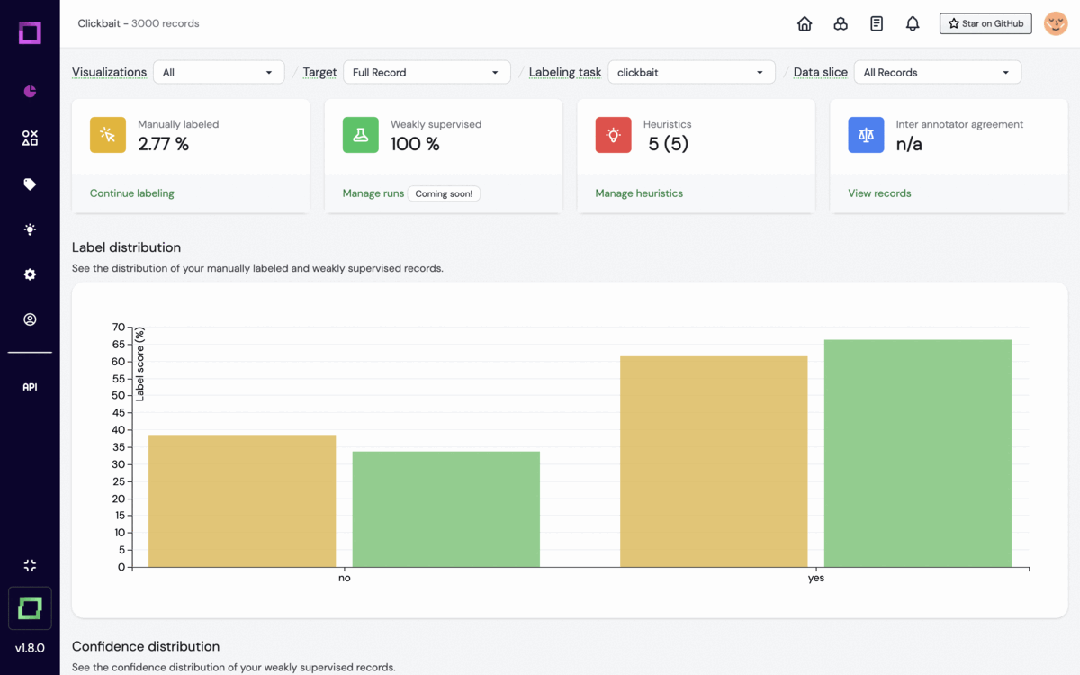
Refinery is an open source platform from KernAI designed for data scientists working with natural language data. It provides functions such as semi-automated data annotation, data subset quality assessment, and centralized data monitoring, aiming to improve manual labeling efficiency.
The tool leverages technologies such as Hugging Face and spaCy to build pre-built language models and integrates with other labeling tools for flexible data processing.
Features:
- (Semi-)automated labeling workflow for NLP tasks
- Manual and programmatic classification and span labeling
- Support with State-of-the-art library and framework integration
- Create and manage lookup tables/knowledge bases
- Neural search-based similar record and outlier retrieval
- Sliceable tag sessions
- Multiple tag tasks per project
- Rich automation library
- Extensive data management and monitoring
- Integration with Hugging Face for automated creation of embeds
- JSON-based data model for data upload/download
- Project Metrics Overview
- Access and extend data via Python SDK
- In-place attribute modification
- Team collaboration in the hosted version
- Role-based access and minimized tag view for multiple users
- Integrated group tag workflow
- Automatically Calculate agreement between annotators
7.Recogito.js
##https://github.com/recogito/recogito-js
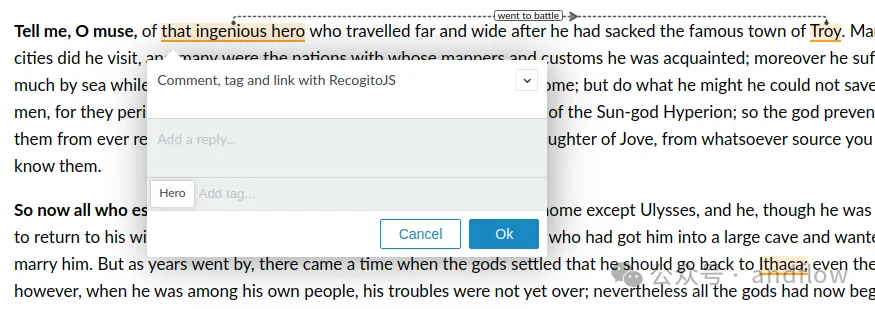
8.Label Sleuth
https://github.com/label-sleuth/label-sleuth
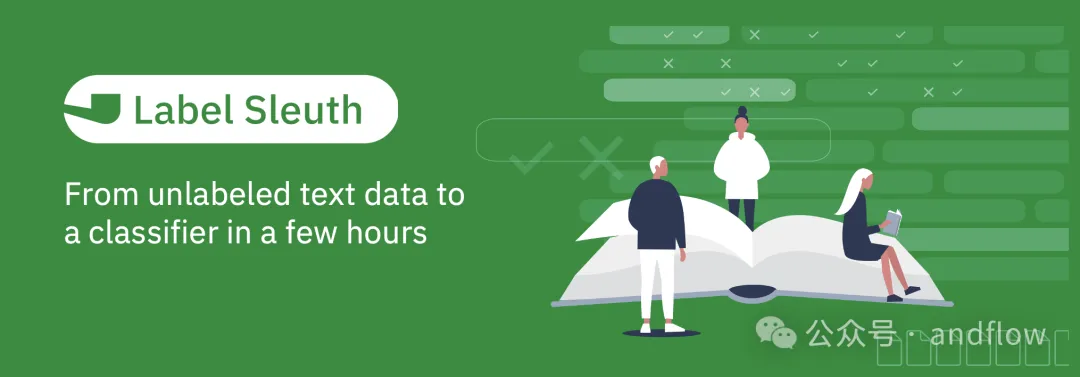
Label Sleuth is an open source, no-code system for text labeling and classification. It enables experts in fields such as doctors, lawyers, and psychologists to build custom NLP models without the cooperation of NLP experts.
Usually NLP model creation requires domain and machine learning expertise. Label Sleuth bypasses the requirement for NLP expertise with intuitive text annotation and AI model building. While users are labeling data, machine learning models are trained in the background, making predictions and suggesting what to label next.
As a no-code system, it requires no machine learning knowledge and allows rapid model development, from task definition to completed model in just a few hours.
9.Markup
https://github.com/samueldobbie/markup
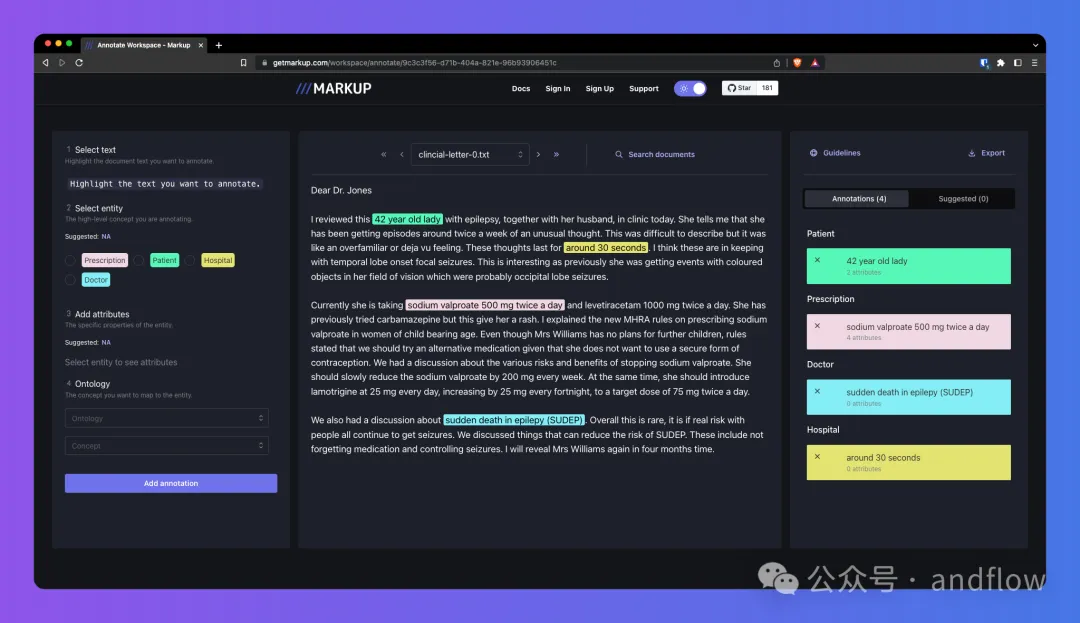
Markup is an online annotation tool that can be used to convert unstructured documents into structured formats for NLP and ML tasks, such as entity recognition. Simultaneous learning as you annotate to predict and recommend more complex annotations, and also provides integrated access to common and custom ontologies for concept mapping.
Features:
- Predictive annotation: Markup’s machine learning-driven predictive annotation function can recommend more complex annotations as you work, making the annotation process more efficient. .
- Integrated ontology access tags: Provides integrated access to a wide range of common ontologies (e.g. UMLS, SNOMED-CT, ICD-10), as well as the ability to upload custom ontologies for concept mapping.
- Predictive ontology mapping: Markup’s predictive ontology mapping feature uses machine learning to recommend appropriate mappings to standard and custom terms based on the text you are annotating.
- User-Friendly Interface: Whether you are a technical expert or a beginner, Markup's user-friendly interface makes it easy for anyone to start annotating documents with minimal setup.
10.Potato
https://github.com/davidjurgens/potato
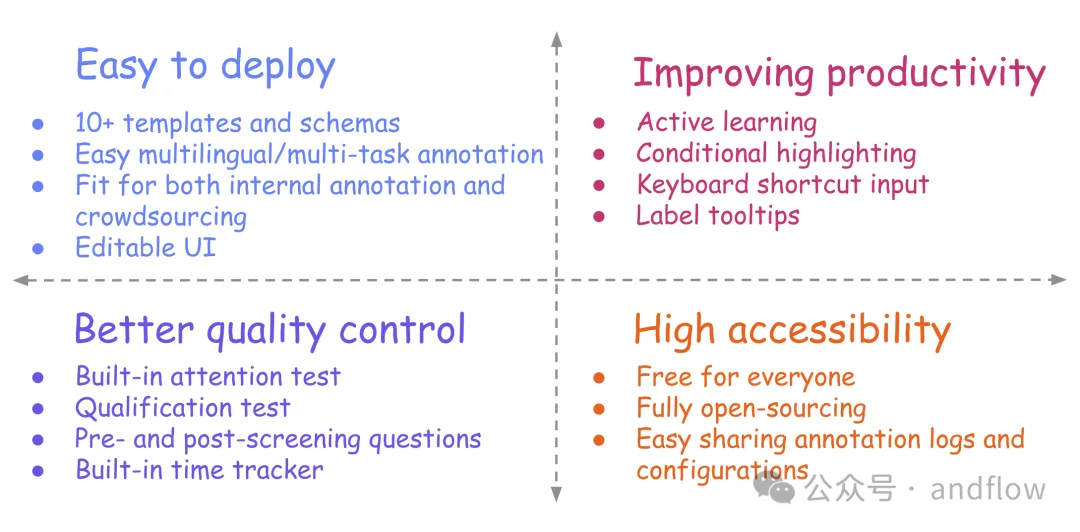
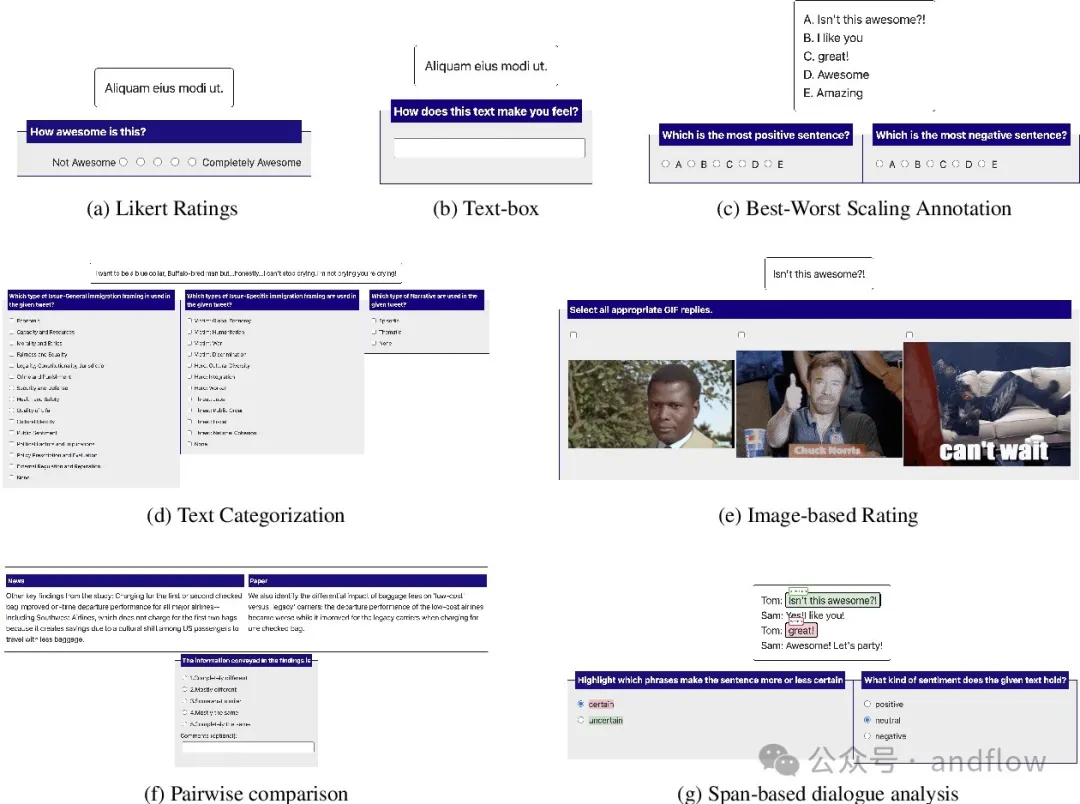
Potato is a web-based text annotation tool that supports quick setup and deployment of various text annotation tasks. Can run as a web server, driven by a single configuration file, requiring no startup coding. But Potato is easy to customize, and usually does not require additional web design to adjust the user interface for text annotators.
Key Features:
- Easy to set up and customize
- Extensive built-in schemas and templates
- Supports multiple data types
- Support multi-tasking settings
- Improve annotation efficiency with features such as keyboard shortcuts, dynamic highlighting, and label tooltips
- Get a better understanding of annotator functions, such as before and after filtering Questions
- Quality control features like attention test, qualification test and built-in time check
The above is the detailed content of Ten recommended open source free text annotation tools. For more information, please follow other related articles on the PHP Chinese website!

Hot AI Tools

Undresser.AI Undress
AI-powered app for creating realistic nude photos

AI Clothes Remover
Online AI tool for removing clothes from photos.

Undress AI Tool
Undress images for free

Clothoff.io
AI clothes remover

AI Hentai Generator
Generate AI Hentai for free.

Hot Article

Hot Tools

Notepad++7.3.1
Easy-to-use and free code editor

SublimeText3 Chinese version
Chinese version, very easy to use

Zend Studio 13.0.1
Powerful PHP integrated development environment

Dreamweaver CS6
Visual web development tools

SublimeText3 Mac version
God-level code editing software (SublimeText3)

Hot Topics
 What are the types of return values of c language function? Summary of types of return values of c language function?
Apr 03, 2025 pm 11:18 PM
What are the types of return values of c language function? Summary of types of return values of c language function?
Apr 03, 2025 pm 11:18 PM
The return value types of C language function include int, float, double, char, void and pointer types. int is used to return integers, float and double are used to return floats, and char returns characters. void means that the function does not return any value. The pointer type returns the memory address, be careful to avoid memory leakage.结构体或联合体可返回多个相关数据。
 What are the pointer parameters in the parentheses of the C language function?
Apr 03, 2025 pm 11:48 PM
What are the pointer parameters in the parentheses of the C language function?
Apr 03, 2025 pm 11:48 PM
The pointer parameters of C language function directly operate the memory area passed by the caller, including pointers to integers, strings, or structures. When using pointer parameters, you need to be careful to modify the memory pointed to by the pointer to avoid errors or memory problems. For double pointers to strings, modifying the pointer itself will lead to pointing to new strings, and memory management needs to be paid attention to. When handling pointer parameters to structures or arrays, you need to carefully check the pointer type and boundaries to avoid out-of-bounds access.
 How to use C language function pointer to find the maximum value of a one-dimensional array
Apr 03, 2025 pm 11:45 PM
How to use C language function pointer to find the maximum value of a one-dimensional array
Apr 03, 2025 pm 11:45 PM
Flexible application of function pointers: use comparison functions to find the maximum value of an array. First, define the comparison function type CompareFunc, and then write the comparison function compareMax(a, b). The findMax function accepts array, array size, and comparison function parameters, and uses the comparison function to loop to compare array elements to find the maximum value. This method has strong code reusability, reflects the idea of higher-order programming, and is conducive to solving more complex problems.
 How to output a countdown in C language
Apr 04, 2025 am 08:54 AM
How to output a countdown in C language
Apr 04, 2025 am 08:54 AM
How to output a countdown in C? Answer: Use loop statements. Steps: 1. Define the variable n and store the countdown number to output; 2. Use the while loop to continuously print n until n is less than 1; 3. In the loop body, print out the value of n; 4. At the end of the loop, subtract n by 1 to output the next smaller reciprocal.
 CS-Week 3
Apr 04, 2025 am 06:06 AM
CS-Week 3
Apr 04, 2025 am 06:06 AM
Algorithms are the set of instructions to solve problems, and their execution speed and memory usage vary. In programming, many algorithms are based on data search and sorting. This article will introduce several data retrieval and sorting algorithms. Linear search assumes that there is an array [20,500,10,5,100,1,50] and needs to find the number 50. The linear search algorithm checks each element in the array one by one until the target value is found or the complete array is traversed. The algorithm flowchart is as follows: The pseudo-code for linear search is as follows: Check each element: If the target value is found: Return true Return false C language implementation: #include#includeintmain(void){i
 How to define the call declaration format of c language function
Apr 04, 2025 am 06:03 AM
How to define the call declaration format of c language function
Apr 04, 2025 am 06:03 AM
C language functions include definitions, calls and declarations. Function definition specifies function name, parameters and return type, function body implements functions; function calls execute functions and provide parameters; function declarations inform the compiler of function type. Value pass is used for parameter pass, pay attention to the return type, maintain a consistent code style, and handle errors in functions. Mastering this knowledge can help write elegant, robust C code.
 Integers in C: a little history
Apr 04, 2025 am 06:09 AM
Integers in C: a little history
Apr 04, 2025 am 06:09 AM
Integers are the most basic data type in programming and can be regarded as the cornerstone of programming. The job of a programmer is to give these numbers meanings. No matter how complex the software is, it ultimately comes down to integer operations, because the processor only understands integers. To represent negative numbers, we introduced two's complement; to represent decimal numbers, we created scientific notation, so there are floating-point numbers. But in the final analysis, everything is still inseparable from 0 and 1. A brief history of integers In C, int is almost the default type. Although the compiler may issue a warning, in many cases you can still write code like this: main(void){return0;} From a technical point of view, this is equivalent to the following code: intmain(void){return0;}
 Zustand asynchronous operation: How to ensure the latest state obtained by useStore?
Apr 04, 2025 pm 02:09 PM
Zustand asynchronous operation: How to ensure the latest state obtained by useStore?
Apr 04, 2025 pm 02:09 PM
Data update problems in zustand asynchronous operations. When using the zustand state management library, you often encounter the problem of data updates that cause asynchronous operations to be untimely. �...






